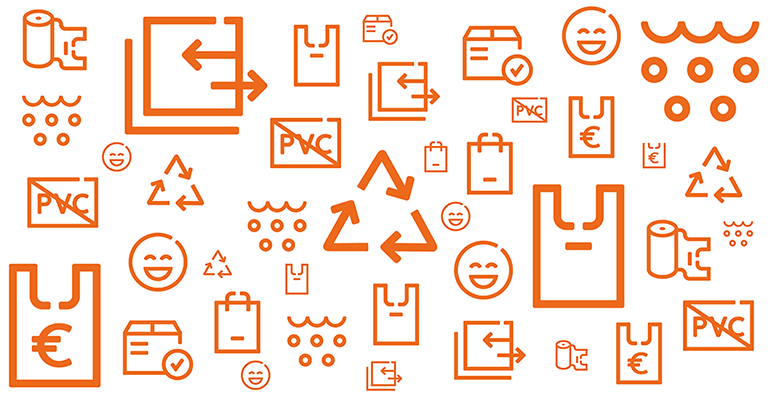
K Group removed the environmentally harmful microbeads from the Pirkka cosmetic products

Cosmetic products often use small microbeads that are able to pass through wastewater treatment facilities to water bodies. Microplastics are an environmental risk in waterways due to their longevity. In 2017, K Group fulfilled its commitment and eliminated microbeads from the Pirkka cosmetic products. This action was one of the actions taken by the K Group to reduce plastic waste.
“The serious harmful impacts of microplastics on the environment have been recently acknowledged. There is no current EU or domestic legislation on microplastics, but we at K Group wanted to take initiative on the matter on our own. According to the Finnish Environment Institute, approximately ten per cent of the plastics floating in the world's oceans are microplastics, so all actions taken to reduce the amount of microplastics are important,” says K Group Product Quality Manager Timo Kivi.
In 2017, K Group fulfilled its commitment and eliminated microbeads from all of the cosmetic products in its own brands. Microbeads will also be removed in 2018 from all of the detergents in K Group’s own brands.
Microbeads have been used, for example, as abrasive and cleansing ingredients in cosmetics and detergents. Small, plastic particles less than 5 mm in size, however, are able to easily pass through wastewater treatment facilities into waterways where they are an environmental risk due to their longevity. When the plastic ends up in the water, it also causes serious harm to animals and can easily enter the human food chain.
“Microplastic-free products must also conform to our strict quality requirements. Microbeads may greatly affect the appearance and features of the product, so eliminating them meant re-evaluating the entire composition of the product. For example, eliminating microplastics from detergents affects the colour and transparency of the products,” says Timo Kivi.
K Group is actively developing new types of operational models in order to reduce plastic waste.
Plastics cause problems when they end up in water bodies and elsewhere in the environment. Together with manufacturing and its business partners, K Group is actively developing completely new types of operational models to reduce plastic waste. Tangible goals and actions have been listed in K Group’s plastics policy. K Group's goal is that by 2025, 100% of plastic waste is recovered across all divisions.
“It is our responsibility to ensure that the customer can shop with confidence in K-stores. As the world's most sustainable trading sector company, K Group wants to actively promote the circular economy and develop completely new types of operational models that prevent plastics from ending up in water bodies and elsewhere in the environment,” says Matti Kalervo, K Group Vice President of Corporate Responsibility.
K Group's actions to reduce plastic waste:
- The Green Deal agreement aims to reduce the number of plastic bags.
K Group participates in the Green Deal agreement made by the Finnish Commerce Federation and the Ministry of the Environment, which aims to reduce the use of plastic bags through voluntary actions. K Group is committed to the EU’s target of reducing the number of plastic bags used annually per person to 40 by 2025. - Microplastic-free cosmetics in K Group’s own brands.
Since 1 January 2018, the cosmetic products in K Group’s own brands are free of environmentally harmful microplastics. All K Group own-brand detergents will also be made microplastic-free in 2018. K Group’s product ranges also do not include OXO-degradable plastic bags or small bags, because they turn into micro-particles as they degrade. - The Pirkka ESSI circular bag encourages plastics recycling.
The Pirkka ESSI circular bag introduced in 2017 is the first Finnish circular economy shopping bag. The bags are made of over 90 % recycled materials, around half of which is plastic packaging waste collected separately from households. - EcoFishBox significantly reduces plastic waste produced by the grocery trade.
The K-food stores have successfully piloted the wood fibre-based EcoFishBoxes made by Stora Enso. Over 100 million styrofoam packages are used to package fish in the Nordic countries every year. Replacing the styrofoam packaging materials with corrugated cardboard reduces carbon dioxide emissions by a minimum of 30% throughout the value chain. - K Group’s gift cards were made PVC-free.
K Group is continuously seeking new replacement material solutions for PVC plastics, which contain chlorine, stabilisers and phthalates that are considered to have significant environmental and health impacts. Since 2017, K Group’s gift cards have been made of PVC-free materials. The manufacturing materials for Plussa cards will also be made PVC-free in 2018. - Onninen reduces the number of plastic bags.
Loyal customers have been distributed shopping baskets at Finland's Onninen Express stores. The customers are able to take the baskets with them to jobsites and use them during their next visit to the store. In addition, excess cardboard boxes are available to customers and large reusable bags are offered for sale.
All of the Pirkka cosmetic products are free of microplastics since 1 January 2018. Microbeads were eliminated from the following Pirkka products in 2017:
- Pirkka lip balm natural 4.5g 2-pack
- Pirkka lip balm cranberry 4.5g
- Pirkka Perheshampoo 500ml fruit
- Pirkka Perheshampoo 500ml berry
- Pirkka Perheshampoo 500ml citrus
K Group’s stores may still have small quantities of products available for sale for a limited time that were ordered prior to the microplastics being removed. Stores also still have a few cosmetic products available for sale that have particles with product names referring to plastics. As a part of the evaluation, it was ensured that the particles in these products are not microplastics.
> Learn more about K Group’s plastics policy: kesko.fi/plasticspolicy